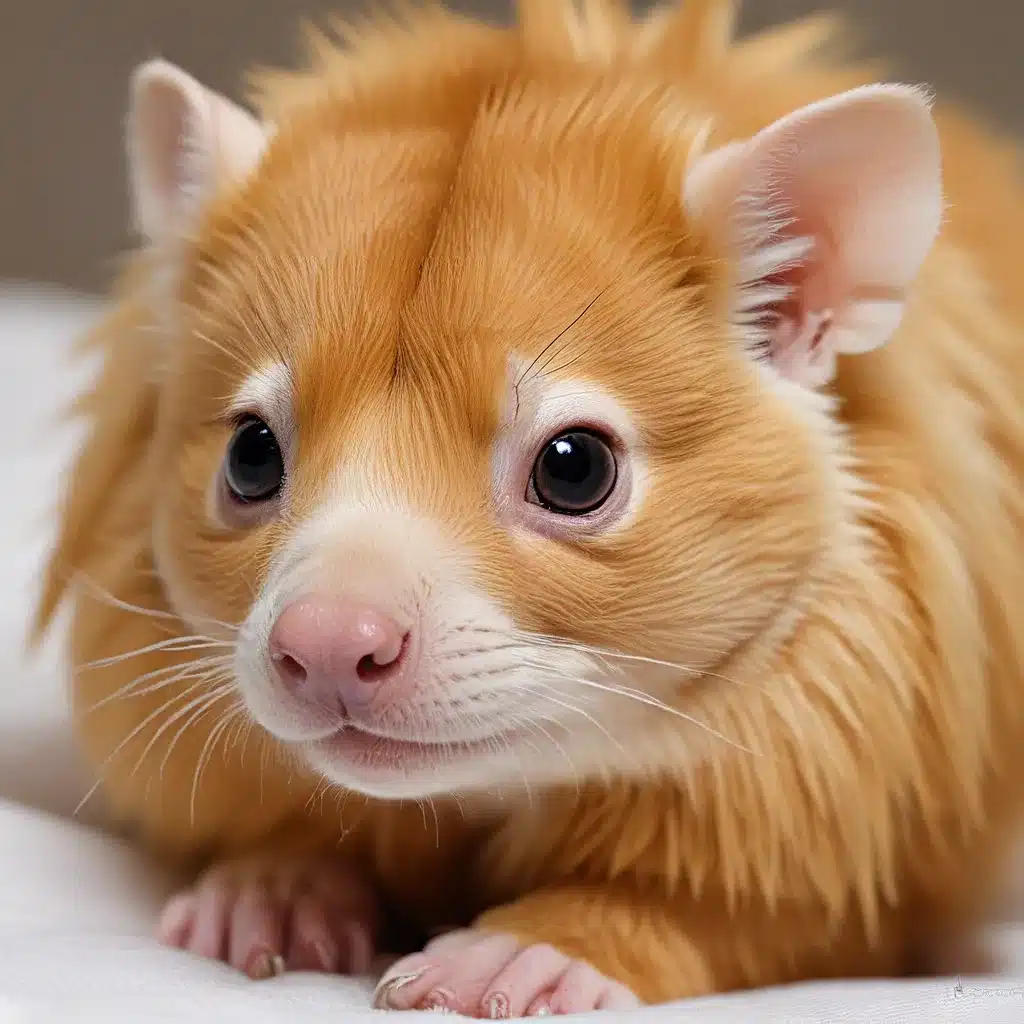
The Invisible Threats Lurking Behind Furry Faces
Who would’ve thought that your adorable exotic pet could be harboring unseen dangers? As the proud parent of a unique critter, you already know the joy and wonder they bring into your life. But have you considered the invisible threats that could be lurking beneath those bright eyes and fuzzy faces?
It’s a harsh reality we must face – our exotic companions are just as susceptible to illness as their domestic counterparts. From the majestic cockatoo to the curious sugar glider, these amazing animals require specialized care to keep them healthy and happy. And when it comes to preventing and detecting disease, early intervention is the key to safeguarding their wellbeing.
Staying One Step Ahead of the Game
Paging Dr. Dolittle! As exotic pet owners, we need to put on our detective hats and become masters of observation. These creatures are experts at masking any signs of distress – after all, showing weakness in the wild is a surefire way to become someone else’s dinner.
That’s why regular wellness exams are so crucial. As the American Association of Veterinary Medical Colleges explains, these thorough checkups can uncover underlying issues before they spiral out of control. From monitoring dental health to evaluating organ function, your vet is your loyal sidekick in this mission to keep your pet in tip-top shape.
But the work doesn’t stop there. As the first line of defense, you need to be hypervigilant in your daily observations. Is your gecko moving a little slower than usual? Has your ferret lost its appetite? These subtle changes could be the canary in the coal mine, signaling the need for immediate veterinary attention.
The Invisible Enemy: Exotic Diseases
Now, I know what you’re thinking – my little critter is safe and sound in my loving home, far away from any exotic illnesses. Well, I hate to break it to you, but danger could be lurking around every corner.
According to the National Academies of Sciences, Engineering, and Medicine, the United States faces a daunting challenge when it comes to preventing, detecting, and diagnosing animal diseases, both zoonotic and non-zoonotic. And these threats don’t discriminate – from our prized show birds to our cuddly pocket pets, no exotic is immune.
Table 1: Primary Federal Jurisdictions for Specific Animal Diseases
| Disease | Animals Affected | Government Agencies |
|---|---|---|
| Exotic Newcastle Disease | Multiple avian species | DOI NWHC, USDA APHIS, ARS, CSREES, DHS, USTR, OSTP |
| Foot-and-mouth Disease | Cattle, swine, other cloven-hoofed species, sheep, goats, deer | DOI NWHC, USDA APHIS, ARS, CSREES, DHS, DoD, USTR, White House, OSTP, OMB |
| Monkeypox | Prairie dogs, humans | HHS FDA, CDC, DHS, DOI FWS, USDA APHIS, CSREES |
The sheer number of government agencies involved in managing these outbreaks underscores the complexity of the challenge. And the consequences of a disease outbreak can be catastrophic – not just for your beloved pet, but for the entire exotic animal community and beyond.
Turning the Tide: The Power of Early Detection
So, what’s the secret to staying one step ahead of these invisible threats? Early detection. As the team at Kersting Veterinary Hospital emphasizes, “Prevention is key. Regular wellness exams can help detect early signs of disease or infection.”
By catching issues early, you and your vet can nip them in the bud before they have a chance to escalate. Think of it like caring for a delicate flower – a little TLC and vigilance can go a long way in keeping it thriving.
And the benefits of early detection go far beyond your pet’s wellbeing. As the Hodes Veterinary Group points out, “Regular veterinary visits allow for early detection of any underlying health problems that your pet may be experiencing.” This not only saves you from costly and traumatic treatments down the line, but it also protects the broader exotic animal community.
The Exotic Pet Superhero Squad
Now, I know what you’re thinking – how on earth am I supposed to keep up with all of this? Between work, family, and trying to squeeze in some much-needed cuddle time with my furry friend, where do I find the time to be a disease-detecting superhero?
Fear not, my fellow exotic enthusiasts! You’re not alone in this fight. Your vet is your greatest ally, armed with the knowledge and expertise to guide you through the minefield of potential illnesses. But you’re also part of a larger network of vigilant exotic pet owners, all working together to safeguard the health and wellbeing of our unique companions.
By staying informed, being vigilant, and working closely with your vet, you’re well on your way to becoming a master of exotic pet illness prevention. And who knows – you might even discover a hidden talent for investigative work along the way!
Closing Thoughts: A Healthier Future for All
As we navigate the ever-evolving landscape of exotic pet care, one thing is clear: early detection is the key to a healthier, happier future for our furry, feathered, and scaly friends. By staying proactive, working closely with our veterinary partners, and fostering a community of vigilant exotic enthusiasts, we can beat back the invisible threats and keep our beloved companions thriving.
So, let’s put on our investigative hats, sharpen our observation skills, and dive headfirst into this mission to protect the health and wellbeing of our exotic pets. After all, they deserve nothing less than the very best we can give them.

